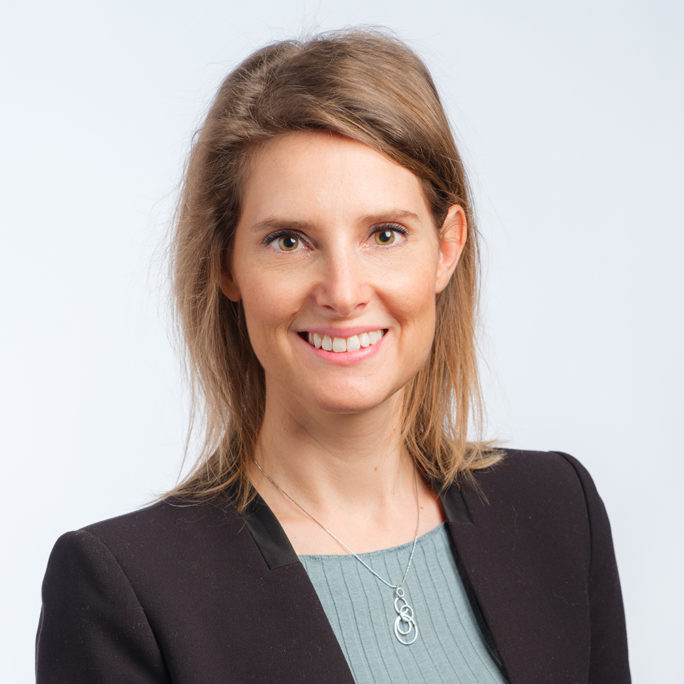The Swiss Data Science Center (SDSC), a joint EPFL-EPFZ initiative, aims to help academia and industry to benefit from data science and machine learning. To this end, the SDSC collaborates with numerous companies. But while it's easy for large corporations to mandate the SDSC for their projects, it's sometimes more complicated for SMEs and startups who don't have the same budgets. Over the last few years, the SDSC has therefore decided to take part, as an academic partner, in projects financed by Innosuisse, and has recently discovered Alliance coaching.
Established in 2017 by EPFL and ETH Zurich, the Swiss Data Science Center (SDSC) aims to accelerate the use of data science and machine learning in Switzerland, in both academic and industrial circles. The SDSC collaborates with companies to support them in data-driven decision-making and maximize their impact. The SDSC regularly responds to requests from companies, offering tailor-made projects on a direct mandate basis. While this solution is suitable for companies with sufficient financial resources, it excludes certain SMEs and startups that do not have the budget for this type of mandate.
With a team of 25 data scientists and five years' experience under its belt, the SDSC's innovation unit has for some years now been preparing Innosuisse funding applications as an academic partner in this type of project. This development has enabled us to extend our activities to a larger number of companies.
Drawing on the skills developed through direct mandate projects, the SDSC aims to create a virtuous circle. The aim is to reuse these skills and make them available to smaller companies for promising projects. Often, the topics brought in by SMEs or start-ups are related to the use of AI to optimize pharmaceutical processes or chemical formulations. This enables the SDSC to take action in strategic areas for the center, such as health, sustainability or energy. And Innosuisse projects are an opportunity to hone skills in these areas!
Meeting Alliance
Silvia Quarteroni, CTO & Head of Innovation at SDSC, had already had the opportunity to meet Robert van Kommer and Pascale Van Landuyt, advisors and innovation mentor Alliance. When start-up Tigen Pharma contacted the SDSC with a project related to cell and gene therapies, Silvia Quarteroni immediately thought of Alliance support. The subject promised great potential for Swiss healthcare and biomanufacturing, but required Innosuisse funding. To obtain this, the project team needed coaching. Indeed, Innosuisse applications are complex and include various elements such as a business case, a good positioning in terms of innovation and a solid research plan to match the eligibility criteria. The proposal writing process, led by Anna Fournier, Principal Data Scientist at SDSC, and Antoine Maison, Head of Digital Innovation at Tigen, benefited greatly from Alliance's personalized advice on framing the project, defining objectives and demonstrating impact. Alliance's coaching provides expertise and a neutral external viewpoint, important for defining the project and putting together the application.

It's a strategic job, and it's very useful to have the viewpoint of someone outside the project.
When setting up the project with Tigen Pharma, Alliance provided initial information on the specifics of Innosuisse applications, and a meeting to launch the drafting of the project, including both partners, helped to establish the strategy to be adopted in putting together the application. Once the first draft was ready, Alliance stepped in again to help finalize the dossier, in order to fine-tune and harmonize the application. As a result, the application for Innosuisse funding was submitted and accepted, and the project will soon get underway.
The Tigen Pharma project is therefore the first Innosuisse project submitted by the SDSC with Alliance support. But the Center is not stopping there: in parallel, two other projects have received an Innochèque with the help of Alliance, and the SDSC would like to see them developed further through standard Innosuisse projects.
The help and coaching we received from Alliance during the proposal writing process helped us shape the proposal more effectively.
Next steps
In the future, the SDSC aims to expand into areas such as healthcare and energy efficiency. After these successful Innosuisse experiences, it will be easier to respond favorably to this type of project, as well as to these new fields. The SDSC will even be able to be proactive for promising start-ups and SMEs. As Silvia Quarteroni points out, these small, innovative companies often bring us very interesting, riskier projects, but we're ready to collaborate with them. Silvia Quarteroni adds: "Thanks to these initial successes and our contact with Alliance, we'll be able to offer companies the chance to collaborate with Innosuisse financing.
I was impressed by Alliance's expertise. The figure of the coach is very important to have a good proposal, a good file and Alliance is a sure value.
The Swiss Data Science Center at a glance
Foundation: 2017
Headquarters: Lausanne and Zürich
Team: 100+ data scientists and specialists
Competencies: Accelerating the uptake of data science and machine learning in Switzerland, in the academic community and in industry
Coaching Alliance: 3 projects to be submitted in 2023 (one Innosuisse project and two Innochèques)
Website: www.datascience.ch

